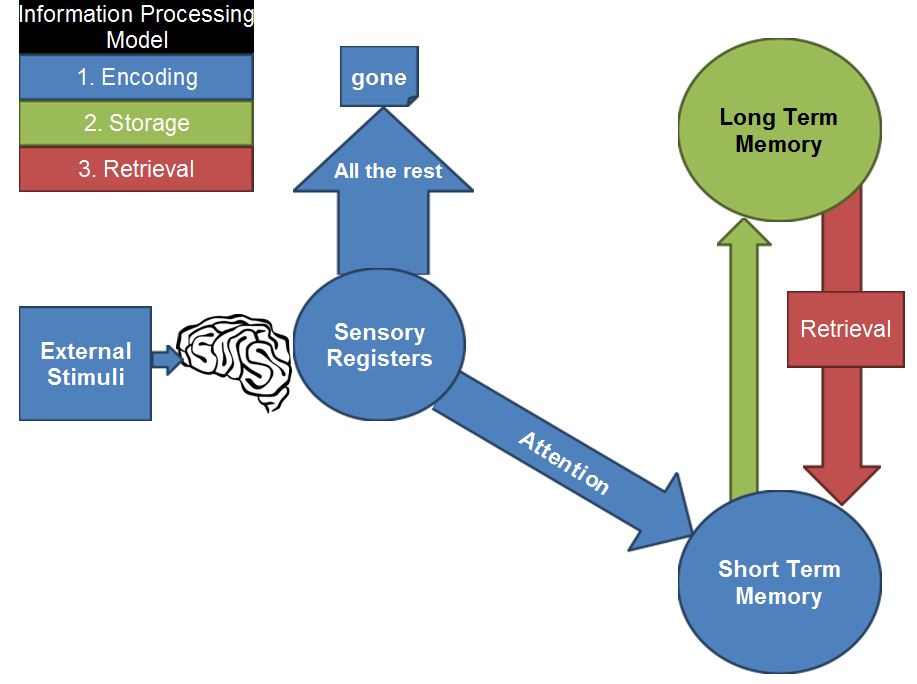Unit 5: Cognition
Cognition Class Slides/Notes
Cognition Unit Overview
Learning Journal
How to write an FRQ
5.1 Introduction to MemoryConcept Map for 5.1
|
A. Compare and contrast various cognitive processes.
B. Describe and differentiate psychological and physiological systems of memory. C. Identify the contributions of key researchers in cognitive psychology. |
5.2 Encoding
Concept Map for 5.2
|
D. Outline the principles that underlie construction and encoding of memories.
|
5.3 Storing
Concept Map for 5.3
|
E. Outline the principles that underlie effective storage of memories.
|
5.4 Retrieving
Concept Map for 5.4
|
F. Describe strategies for retrieving memories.
|
5.5 Forgetting and Memory Distortion
Concept Map for 5.5
|
G. Describe strategies for memory improvement and typical memory errors
|
5.6 Biological Bases for MemoryConcept Map for 5.6
|
H. Describe and differentiate psychological and physiological systems of short-and long-term memory.
|
5.7 Introduction to Thinking and Problem Solving- Concept Map for 5.7
|
I. Identify problem solving strategies as well as factors that influence their effectiveness.
J. List the characteristics of creative thought and creative thinkers. |
5.8 Biases and Errors in ThinkingConcept Map for 5.8
|
K. Identify problem-solving strategies as well as factors that create bias and errors in thinking.
|
5.9 Introduction to IntelligenceIntelligence Overview
|
L. Define intelligence and list characteristics of how psychologists measure intelligence.
M. Discuss how culture influences the definition of intelligence. N. Compare and contrast historic and contemporary theories of intelligence. O. Identify the contributions of key researchers in intelligence research and testing. |
5.10 Psychometric Principles and Intelligence TestingConcept Map for 5.10
|
P. Explain how psychologists design tests, including standardization strategies and other techniques to establish reliability and validity.
Q. Interpret the meaning of scores in terms of the normal curve. R. Describe relevant labels related to intelligence testing. S. Debate the appropriate testing practices, particularly in relation to culture-fair test uses. |
5.11 Components of Language and Language Acquisition
|
T. Synthesize how biological, cognitive, and cultural factors converge to facilitate acquisition, development, and use of language.
|
Helpful LinksMemory - This hour of Radiolab, a look behind the curtain of how memories are made...and forgotten.
Memory Quiz from AP Psychology Commune Practice MC test for Cognition |

